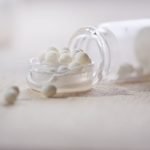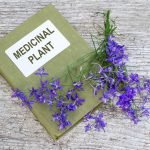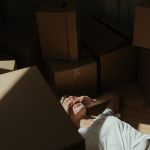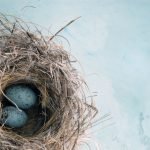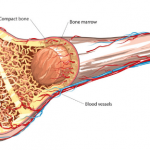Sleep Deprivation May Damage our DNA
Node Smith, ND
A recent study accentuates the importance of a good night’s sleep, and the role of sleep deprivation in the development of chronic disease. The study linked sleep deprivation to DNA damage.1
Study linked sleep deprivation to DNA damage
The authors comment that though the research is preliminary, it is very clear that even a single night of insomnia or sleep deprivation can contribute to the triggering of physiological events that lead to chronic disease.
The study, interestingly enough, was conducted using doctors as the test population. Forty-nine full-time doctors had their blood analyzed at different points in time. On-call doctors who were required to work overnight on-site had lower DNA repair gene expression and more DNA breaks than participants who did not work overnight. In the overnight on-site call doctors, DNA repair gene expression decreased and DNA breaks increased after periods of sleep deprivation. These changes were seen after only a single night of losing sleep.
This DNA damage may help explain the increased risk for cancer and cardiovascular, metabolic, and neurodegenerative diseases
Although additional research is needed, this DNA damage may help explain the increased risk for cancer and cardiovascular, metabolic, and neurodegenerative diseases associated with sleep deprivation. “Although this work is very preliminary, it is clear from the results that even a single night of sleep deprivation can trigger events that may contribute to the development of chronic disease,” said senior author Dr. Siu-Wai Choi, of the University of Hong Kong.
Changes were seen after only a single night of losing sleep
“Anesthetists (and other health professionals) frequently work night shifts and on call duties, and their work patterns change frequently between night and day work. This study is important in that it will allow future researchers to study the impact of changing the way we work and other interventions by evaluating DNA breaks in the same way as the authors of this groundbreaking study have done,” said Dr Klein, the Editor-in-Chief of the journal.
Source:
 Node Smith, ND, is a naturopathic physician in Portland, OR and associate editor for NDNR. He has been instrumental in maintaining a firm connection to the philosophy and heritage of naturopathic medicine among the next generation of docs. He helped found the first multi-generational experiential retreat, which brings elders, alumni, and students together for a weekend camp-out where naturopathic medicine and medical philosophy are experienced in nature. Four years ago he helped found the non-profit, Association for Naturopathic ReVitalization (ANR), for which he serves as the board chairman. ANR has a mission to inspire health practitioners to embody the naturopathic principles through experiential education. Node also has a firm belief that the next era of naturopathic medicine will see a resurgence of in-patient facilities which use fasting, earthing, hydrotherapy and homeopathy to bring people back from chronic diseases of modern living; he is involved in numerous conversations and projects to bring about this vision.
Node Smith, ND, is a naturopathic physician in Portland, OR and associate editor for NDNR. He has been instrumental in maintaining a firm connection to the philosophy and heritage of naturopathic medicine among the next generation of docs. He helped found the first multi-generational experiential retreat, which brings elders, alumni, and students together for a weekend camp-out where naturopathic medicine and medical philosophy are experienced in nature. Four years ago he helped found the non-profit, Association for Naturopathic ReVitalization (ANR), for which he serves as the board chairman. ANR has a mission to inspire health practitioners to embody the naturopathic principles through experiential education. Node also has a firm belief that the next era of naturopathic medicine will see a resurgence of in-patient facilities which use fasting, earthing, hydrotherapy and homeopathy to bring people back from chronic diseases of modern living; he is involved in numerous conversations and projects to bring about this vision.




